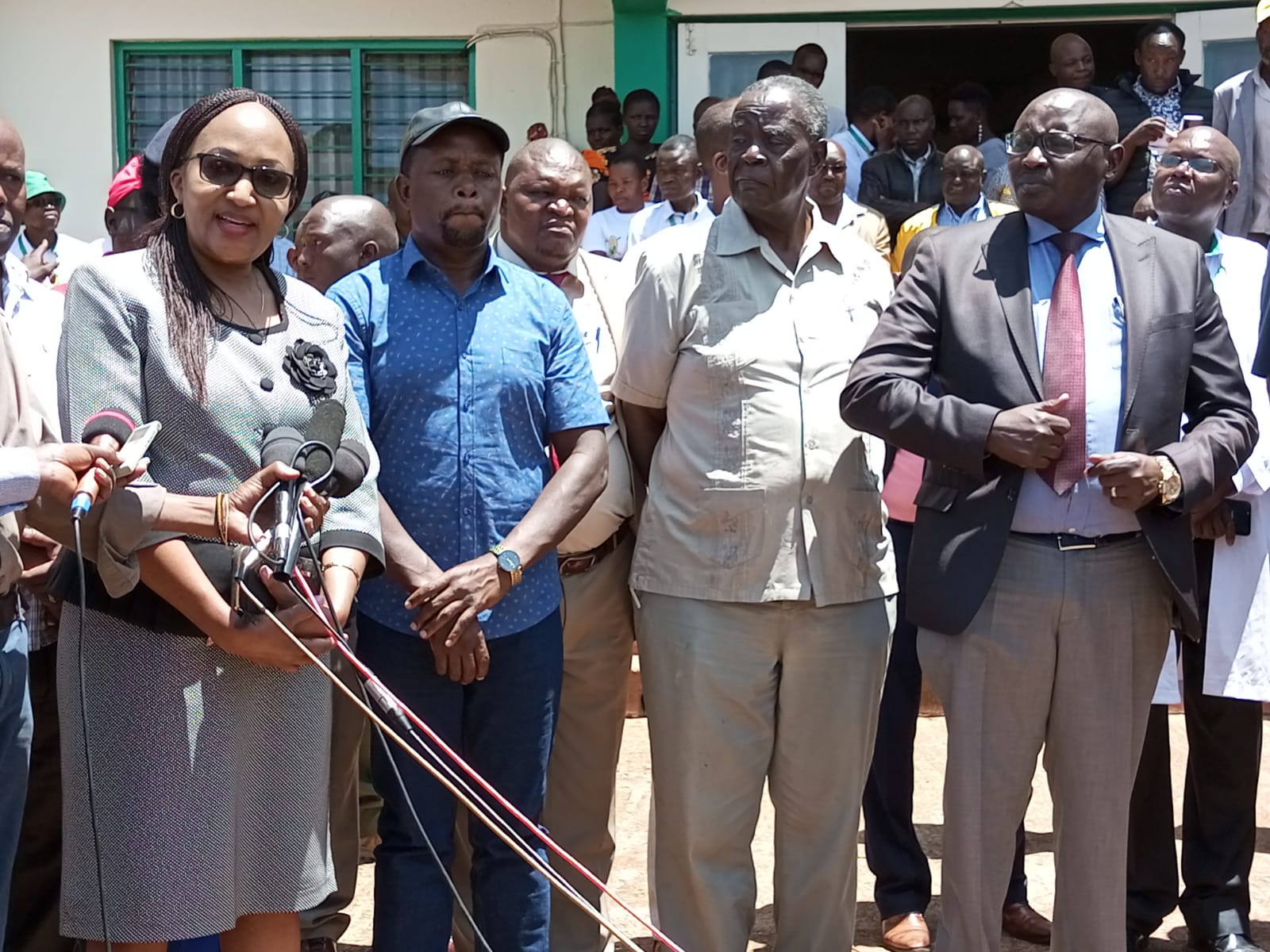Agricultural experts are now cautioning farmers in Trans Nzoia County against embracing sugarcane farming, citing several challenges associated with the cash crop.
Trans Nzoia has famously been referred to as the country’s breadbasket owing to its surplus maize production.
However, this scenario is drastically changing with a number of large-scale farmers substituting maize farming with cane production.
According to official data at the agriculture department, the steady shift to cane farming has witnessed a significant drop in the quantity of maize produced in the county.
Over the last three years, the county has been unable to realise an average of six million bags of maize produced annually as was the case previously.
Though the decline in maize production has partly been attributed to high costs of production coupled with emergent pests and diseases, experts say that the current steady shift to cane farming, if not checked, could be the last straw on Trans Nzoia as Kenya’s food basket.
Speaking to the press in Kitale town on Wednesday, the County Executive Committee Member (CECM) for Agriculture Mary Nzomo revealed that findings by various researchers had ruled out the region, which is classified as highland, as suitable for cane production due to its climatic condition.
According to Mrs Nzomo, cane produced in Trans Nzoia has low sucrose content compared to cane from lowland areas of western and coastal regions. Thus cane farmers in the region would be the greatest losers when new regulations aimed at streamlining the sugar cane sector will come into force.
“Soil and suitability maps survey done two years ago ruled out Trans Nzoia zone as being suitable for sugarcane production, largely due to the region’s soil content and texture as well as underlying weather and climatic conditions,” stated Nzomo.
The CEC hinted at a draft policy which outlines how cane farmers will in the near future be paid not according to quantity, as is the case presently, but based on sucrose content and quality of their produce.
“At the moment cane farmers could be happy since there payments are pegged on quantity of produce. However, most of them will not be happy when the same will be done based on sucrose content and quality,” opined Nzomo.
“From where I sit and as a policy maker, I therefore advise farmers in Trans Nzoia to desist from cultivating sugarcane as they stand to lose when the envisaged policies would be implemented,” appealed Nzomo.
Besides the new policies, the CEC cautioned sugarcane is an alternative host for Sugarcane Mosaic, a virus that causes Maize Lethal Necrosis Disease (MLND) that eventually targets and destroys maize crop, affecting its production.
Nzomo further observed cane growing was rapidly taking up land meant for seed production, thus denying seed companies land for isolation as well as production.
Speaking separately to the media, Mr Abraham Mukhoyi of Kenya Seed Company also expressed concern over the shift from maize to cane production, noting most of the diseases currently affecting the maize crop emanate from cane farms.
“We call upon policy makers to map and zone areas for sugarcane based on soil and climate suitability in order to protect production of other crops, especially cereals,” urged Mukhoyi.
